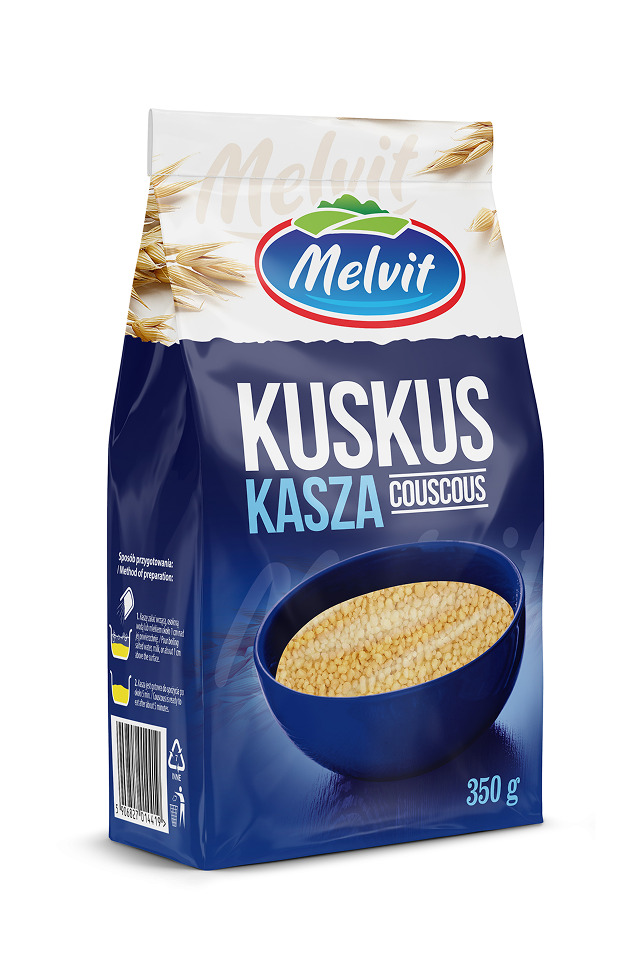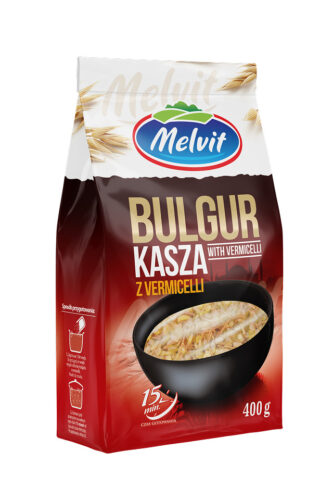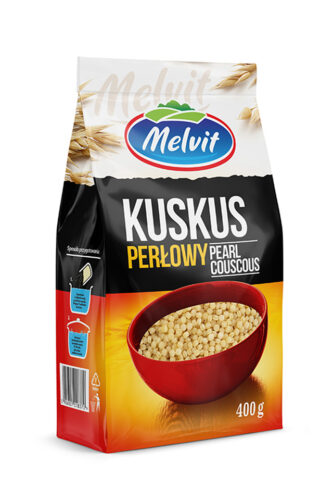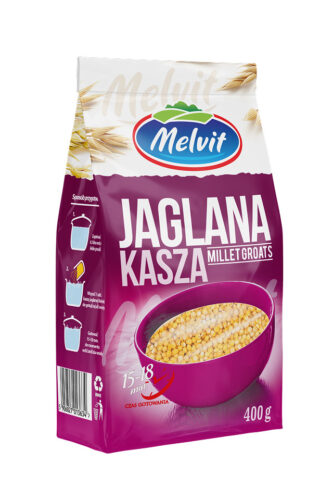Melvit
Couscous 350 g

- Net weight: 350 g
The number of items:
- qty in a box: 12
- qty on a layer: 144
- qty on the pallet: 1008
Nutrition facts per 100 g:
- Energy:1457 kJ / 344 kcal
- Protein:12 g
- Fibre:4 g
- Carbohydrate::68 g
- Sugars:0 g
- Fat:1,8 g
Description:
The appealing flavor, versatility, and ease of preparation have made couscous increasingly popular among Poles, even though it has only recently appeared on our tables. It can be found as a side dish for both formal events and family gatherings. In Middle Eastern countries, it has been regarded as a symbol of happiness and wealth.
Couscous has a rich history, as it was known as early as 3000 B.C. to the Berber people, who eagerly enjoyed this food. Initially, it was made by hand: crushed grains were sprayed with salt water, coated in flour, and then sun-dried. Once dry, it was ready to eat.
Couscous available on store shelves today consists of small granules made from durum wheat and water.
The term ‘couscous’ refers not only to the grain but also to a traditional Moroccan dish made from this ingredient. It is served on a large plate and topped with a sauce made of vegetables and meat. It may surprise us that everyone eats from one dish, usually using their hands.
Couscous has numerous nutritional properties and is especially recommended for vegetarians, as it contains a high amount of protein. It is rich in folic acid, which plays an important role in the prevention of anemia. It is also a source of iron and phosphorus, essential for bone health. Therefore, it’s beneficial to include couscous in meals for children to support their proper development. Iron absorption from couscous can be improved by consuming it alongside foods rich in vitamin C, like peppers or citrus fruits.
Couscous is also rich in folic acid, making it highly recommended for pregnant women. Additionally, it’s a good source of fiber, which speeds up metabolism.




